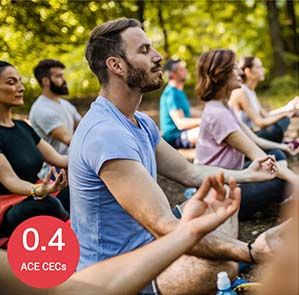
New Research: How to Enhance Cognitive and Sleep Health With Physical Activity

What You Need to Know: Key Findings
- Physical Activity’s Role in Memory: When participants engaged in more moderate-to-vigorous physical activity than usual, their episodic and working memory scores improved the next day. Episodic memory refers to memory for events, while working memory is critical for day-to-day problem-solving.
- The Role of Sleep: Quality sleep, particularly slow-wave sleep, augmented the cognitive benefits of physical activity, linking better sleep to improved memory performance.
- Sedentary Time’s Negative Impact: Days marked by prolonged sedentary behavior saw participants perform worse on cognitive tests the following day.
As a health and exercise professional, you know the wide-reaching physical benefits of exercise and physical activity. Now, emerging research is illuminating how physical activity can also positively impact cognitive and sleep health, particularly in older adults. This article examines findings from two groundbreaking studies to provide actionable insights for enhancing your clients’ overall well-being.
Exercise and Cognitive Health: A Lasting Impact
A study published in the International Journal of Behavioral Nutrition and Physical Activity explored how exercise affects cognitive performance over time. The researchers found that moderate-to-vigorous physical activity (MVPA)—activities like brisk walking or climbing stairs—provided significant short-term cognitive boosts, including better memory and problem-solving abilities, lasting into the following day.
Participants aged 50 to 83 wore activity trackers for eight days and completed daily cognitive tests to measure memory and processing speed. Results showed that individuals who engaged in more MVPA than usual on a given day performed better on memory tests the next day. These improvements were not limited to physical benefits; participants also reported enhanced working memory (essential for problem-solving) and episodic memory (memory of events). This extended cognitive benefit challenges the traditional notion that exercise’s brain-boosting effects are short-lived.
Lead researcher Dr. Mikaela Bloomberg highlighted the potential for longer-lasting impacts, stating, “Our findings suggest that the short-term memory benefits of physical activity may last longer than previously thought. Getting more sleep, particularly deep sleep, seems to add to this memory improvement.” This research also pointed to the critical role of quality sleep, particularly slow-wave sleep, in amplifying the benefits of physical activity.
Sleep and Activity: A Two-Way Relationship
A related study in The Journal of the Formosan Medical Association focused on the interplay among sedentary behavior, physical activity and sleep in older adults. Researchers found that while excessive sedentary behavior (more than 10.9 hours per day) was linked to shorter sleep durations and more nighttime wakefulness, engaging in high-intensity physical activity significantly reduced nocturnal wakefulness, resulting in more restorative sleep.
This research reinforces the need for balance in daily activities. As a health and exercise professional, you can use these insights to encourage clients to incorporate movement throughout the day while avoiding excessive periods of inactivity.
Practical Applications for Health and Exercise Professionals
These findings offer clear guidance on how to design programs that improve both physical and cognitive outcomes. By addressing physical activity, sleep and sedentary behavior holistically, you can make a greater impact on your clients’ overall health.
- Promote regular moderate-to-vigorous physical activity. Encourage clients to incorporate MVPA into their routines, emphasizing that it doesn’t have to be confined to the gym. Brisk walking, dancing or even household chores can boost heart rate and provide cognitive benefits. Explain that the memory-enhancing effects of exercise persist into the next day, offering clients a tangible reason to prioritize movement.
- Emphasize the role of quality sleep. Help clients understand the critical relationship between sleep and cognitive health. Good sleep hygiene, such as maintaining a consistent bedtime routine, reducing screen exposure before bed and ensuring a calm sleep environment, supports the restorative sleep that enhances cognitive performance. Pair this with advice on the timing of exercise; activities performed earlier in the day are more likely to improve sleep quality than late-evening workouts.
- Address sedentary behavior. Prolonged sitting is linked to both poorer sleep and reduced cognitive performance. Recommend strategies like setting alarms to remind clients to stand, walk or stretch at regular intervals. For desk-bound clients, micro-activities such as calf raises or desk stretches can break up periods of inactivity.
- Use wearable technology for behavior change. Encourage clients to use fitness trackers or apps to monitor their physical activity, sleep and sedentary time. These tools provide accountability and allow clients to track their progress, which can be especially motivating.
- Personalize programs for client preferences and abilities. Tailor recommendations based on your clients’ individual goals, preferences and fitness levels. Older adults, for example, may benefit from starting with low-impact activities like water aerobics or tai chi before progressing to higher-intensity workouts. Emphasize gradual progress to reduce the risk of injury while maintaining engagement.
- Frame movement as a cognitive tool. For clients who may be less motivated by physical benefits, highlight the role of exercise in maintaining cognitive function. Use language that resonates with their personal goals, such as “improving focus at work” or “staying sharp for daily challenges.”
Bridging Research and Practice
This research underscores the profound connection among movement, sleep and cognitive health. As Dr. Andrew Steptoe, a professor at the University College London Institute of Epidemiology & Health Care and coauthor of the exercise and cognition study, notes, “This study provides evidence that the immediate cognitive benefits of exercise may last longer than we thought. It also suggests good sleep quality separately contributes to cognitive performance.”
By integrating these insights into your practice, you can inspire clients to see exercise not only as a means to improve physical fitness, but also as a vital component of mental acuity and restful sleep. As you guide clients toward balanced and active lifestyles, you can play an essential role in promoting both immediate and long-term health outcomes that will positively impact their lives for years to come.
Expand Your Knowledge
Precision Nutrition Sleep Management and Recovery
The Precision Nutrition Sleep, Stress Management, and Recovery course is a comprehensive program designed to equip health and exercise professionals with the science and advanced coaching methods necessary to help clients achieve restorative sleep, manage daily stressors, and enhance recovery. This first-of-its-kind course provides the tools to create personalized plans that improve client results and overall well-being, catering to a wide range of individuals from everyday people to elite athletes.
The Step-by-step Guide to Teaching Relaxation
The Step-by-Step Guide to Teaching Relaxation course equips health and exercise professionals with practical tools and techniques to help clients reduce stress, improve mental clarity and enhance overall well-being through guided relaxation practices. This comprehensive program covers the science behind relaxation, the physiological benefits, and actionable methods for integrating relaxation techniques into client sessions. Whether working with individuals or groups, you will gain the knowledge and confidence needed to create a calming environment, guide clients through effective relaxation exercises, and foster long-term stress-management strategies.
A Holistic Approach to Mental Health
The Holistic Approach to Mental Health course offers health and exercise professionals comprehensive strategies to support clients’ mental well-being. You will explore the interconnectedness of physical activity, nutrition, sleep and stress management, learning how to integrate these elements into personalized wellness plans. The course emphasizes practical applications, enabling you to effectively address mental health considerations within your scope of practice. By adopting this holistic approach, you can enhance client outcomes, promoting overall health and resilience.

More Articles
- Certified™: February 2025
The ACE Do It Better Series: Chin-ups
Health and Fitness Expert
- Certified™: February 2025
Anti-obesity Medications: Best Practices and a Glimpse Into the Future
Contributor
- Certified™: February 2025
Menopause and Movement: Empowering Clients Through Evidence-based Support
Contributor




 by
by 




